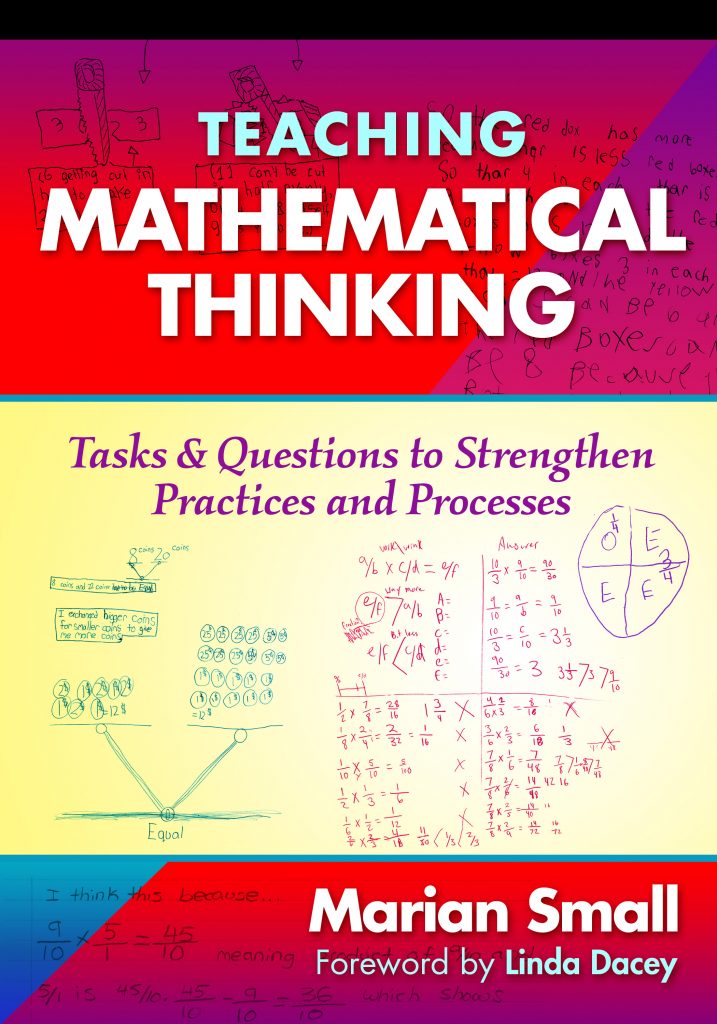What do math teachers view as their biggest challenges and how can they best respond to them?
By
Response From Marian Small
Marian Small is the former dean of education of the University of New Brunswick in Canada and has written about 100 resources for teachers and students on K-12 mathematics. Much of the work she does is on differentiating instruction and teacher questioning:
There was a time, not that long ago, when a math textbook modeled how to correctly complete every sort of task to be learned. A teacher could share those models that she or he did not even have to create, and ask students to answer a slew of questions, where the answers could be checked in the back. There was a lot of security for the teacher, with very few decisions to make.
But now we are asking teachers to teach math so that it makes sense to ALL students, not just the high end student. That means teachers need to teach ideas to different students in different ways; that requires deciding which is the best way for different students. Oops- teachers have to make decisions now.
We also now want teachers to have students solve problems their own ways and have those students defend their processes. What if a student solves a problem in a way the teacher cannot follow? Where has all the teacher’s security gone now?
In spite of all of this insecurity about what’s correct or not and what decisions to make, teachers are feeling the pressure to ensure that each of their students does well on “standardized”, often high stakes, tests. How can a teacher who learned math in a very conventional way be in a position to help students decide whether an argument is a good one or not in preparation for students judging an argument on a standardized test?
On top of all of this, we live in a world without much patience. While students used to be willing to quietly sit through relatively boring math “speeches”, students in our world do not have the patience for this, and, on top of this, they expect their ways of thinking to be affirmed, never dismissed.
I think the best ways to respond are:
- Start learning more. We live in the age of the internet. Google is there to help teachers learn about things they didn’t know before. So maybe the teacher has an obligation to become more aware of the background of the mathematics being taught and not just live in the foreground.
- Borrow from others. Again, because of the internet, there is a sharing culture that provides many resources from which teachers can choose, for free, to make their lessons more engaging and more meaningful. Teachers can just browse for what they want, and there it will be!
- Take risks. We ask students to take risks every time we give them a test or ask them a question. But too many teachers are risk averse. You can’t be an effective teacher if you don’t take risks. That means teachers need to try new approaches and strategies and give it their best shot.
- Listen hard. Teachers are used to doing the talking and not the listening. The best way to grow as a teacher is to put something out there and listen to what students have to say. But teachers need to listen hard, and with an open mind.
- Ask open-ended questions where LOTS of students can participate, from the weakest to the strongest and lots of opinions can be heard and valued; kids these days need to be heard and their interesting ideas, even if they are not typical, need to be appreciated.
Find Marian Small’s newest books here.

